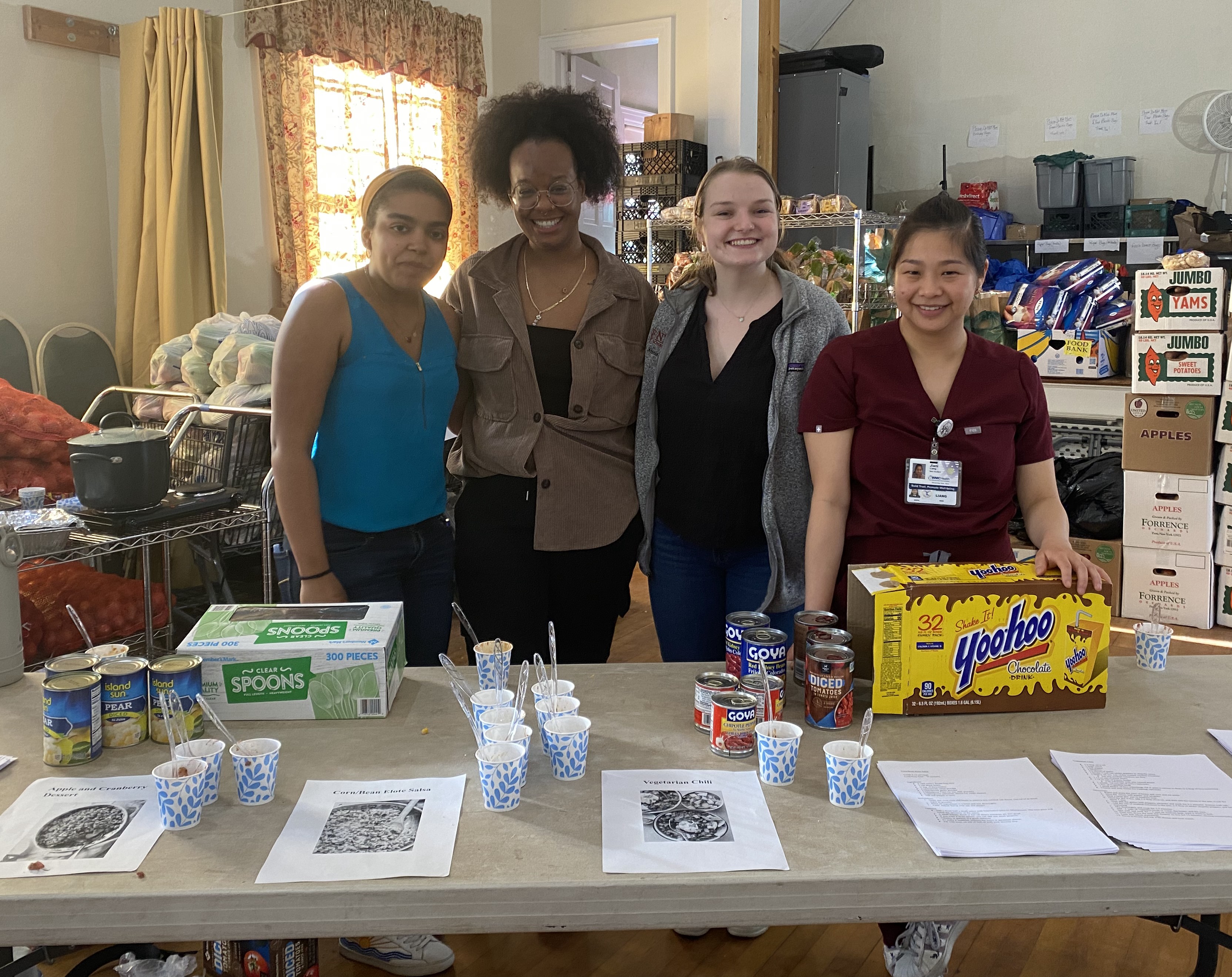NYMC Alpha Omega Alpha Chapter Receives Grant to Combat Food Insecurity
Through a Peer-led Model, FLAME Prepares Students to Screen for Food Insecurity and Connect Patients with Local Resources

The New York Medical College (NYMC) Iota Chapter of Alpha Omega Alpha (AOA) has been awarded a three-year AOA Medical Student Service Leadership Project Grant to support the development of a program to combat food insecurity. Food insecurity Leadership and Advocacy in Medical Education (FLAME) will provide structured opportunities for students to engage with and learn about food insecurity in their community, allowing them to develop leadership skills in advocating for community health. The Iota Chapter is one of only two recipients of leadership project grants from AOA this year.
While NYMC has several programs for combating food insecurity, including an on-campus food pantry and the Food Insecurity and Medical Outreach Club (FIMO), which has a well-established relationship with the Mount Kisco Interfaith Food Pantry, there has been no formal integration of food insecurity into the medical school curriculum.
“Food insecurity is a big problem in Westchester and what highlights that are the long lines at the food pantry in Mount Kisco, where community members rely on it to get a lot of what they need to feed their households,” says Kaleb Noruzi, M.D. ’25, who served as volunteer coordinator with the AOA Iota Chapter this past academic year. “That real-life example of the problem was a big inspiration for the development of FLAME.”
“As medical students, we know how important it is to ask patients about their diet and nutrition during a medical exam, but we didn’t feel we were being adequately prepared to screen patients on whether they were able to obtain proper amounts of nutritious foods,“ says Ryan Cosgro, SOM Class of 2026, current AOA Iota Chapter president. “This project will not only help the community but also give students resources on how important it is to be aware of possible food insecurity in patients, how to screen for it in a way that’s effective and is likely to elicit responses from them, and then once they identify food insecurity, how to address it with your patients by identifying resources in the community available to them.”
FLAME takes a three-pronged approach with the first phase of the program recruiting students to undergo leadership training through a three-day intensive course that trains them to both deliver the curriculum and be leaders in medical advocacy and in teaching medical students how to take on that role in the community.
Those student leaders will then in turn teach other students about food insecurity through a special half-day course open to all class years. The course, based on a seminar developed by Kenna Martin, SOM Class of 2027, incorporates case studies as well as basic fundamentals on food insecurity critical for health care professionals, with the goal of training student volunteers prepared to implement the third phase of FLAME, going out into the community and screening for food insecurity and providing informational resources to community members.
“A key component of FLAME is the use of the train-the-trainer model so that once you have the first cohort of food insecurity curriculum leaders, they then select and train the next cohort and so it’s a self-perpetuating curriculum and this ensures the continuity of the project even beyond the three-year grant funding period,” says Leah Sittenfeld, M.D. ’25.
“Our hope is that through FLAME, we will be providing a larger cohort of NYMC students with the proper training and resources to go out and make real change in the Westchester community,” says Cosgro.

